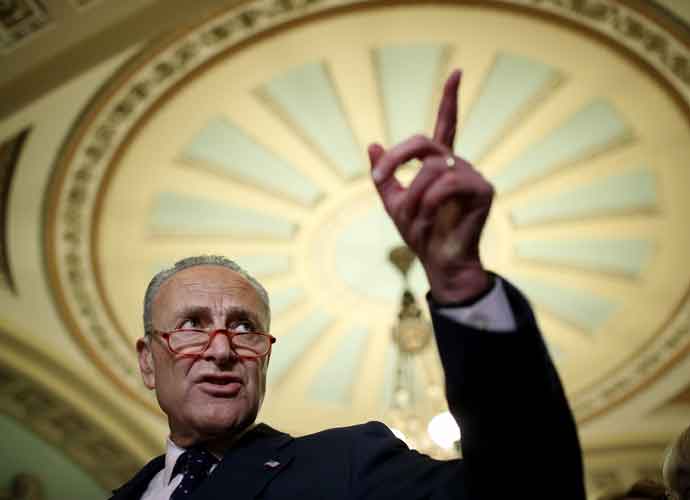Senate Democrats’ Effort To Codify Roe V. Wade Fails In 49-51 Vote
Senate Democrats lost a 49-51 vote on Wednesday to pass a bill that would preserve the federal right to abortion across the nation following last week’s leaked Supreme Court draft opinion indicating a vote that would overturn the landmark 1973 Roe v. Wade ruling.
“Today’s vote is one of the most consequential we will take in decades, because for the first time in fifty years a conservative majority—an extreme majority—on the Supreme Court is on the brink of declaring that women do not have freedom over their own bodies, one of the longest steps back in the court’s entire history; a decision if enacted will go down as one of the worst court decisions ever. The name of this decision will live in infamy,” Senate Majority Leader Chuck Schumer (D-New York) following the vote.
The bill, titled the Women’s Health Protection Act, would have locked in the federal right to abortion and ensured health care providers the right to perform abortions.
The legislation failed to reach the 60 vote threshold to overcome the Republican-controlled filibuster due to Senate Republicans’ opposition. Moderate Democratic Sen. Joe Manchin (West Virginia) voted with all 50 Republican senators. He had voiced his opposition prior to the vote.
Subscribe to our free weekly newsletter!
A week of political news in your in-box.
We find the news you need to know, so you don't have to.
“I would vote for a Roe v Wade codification if it was today. I was hopeful for that, but I found out yesterday in caucus that wasn’t going to be,” he said, explaining that the bill presented went too far.
Moderate Republican Sens. Lisa Murkowski (Alaska) and Susan Collins (Maine) echoed Manchin’s statement before the vote. The two had worked on their own bipartisan legislation to codify Roe v. Wade into federal law, but Schumer said he wouldn’t bring their legislation to the floor because “we are not looking to compromise something as vital as this.”
Senate Minority Leader Mitch McConnell (R-Kentucky) criticized the bill, calling it an “attack on Americans’ conscience rights and religious freedoms.”
“It would overturn modest and overwhelmingly popular safeguards like waiting periods, informed consent laws and possibly even parental notification,” he added.
Get the most-revealing celebrity conversations with the uInterview podcast!







Leave a comment